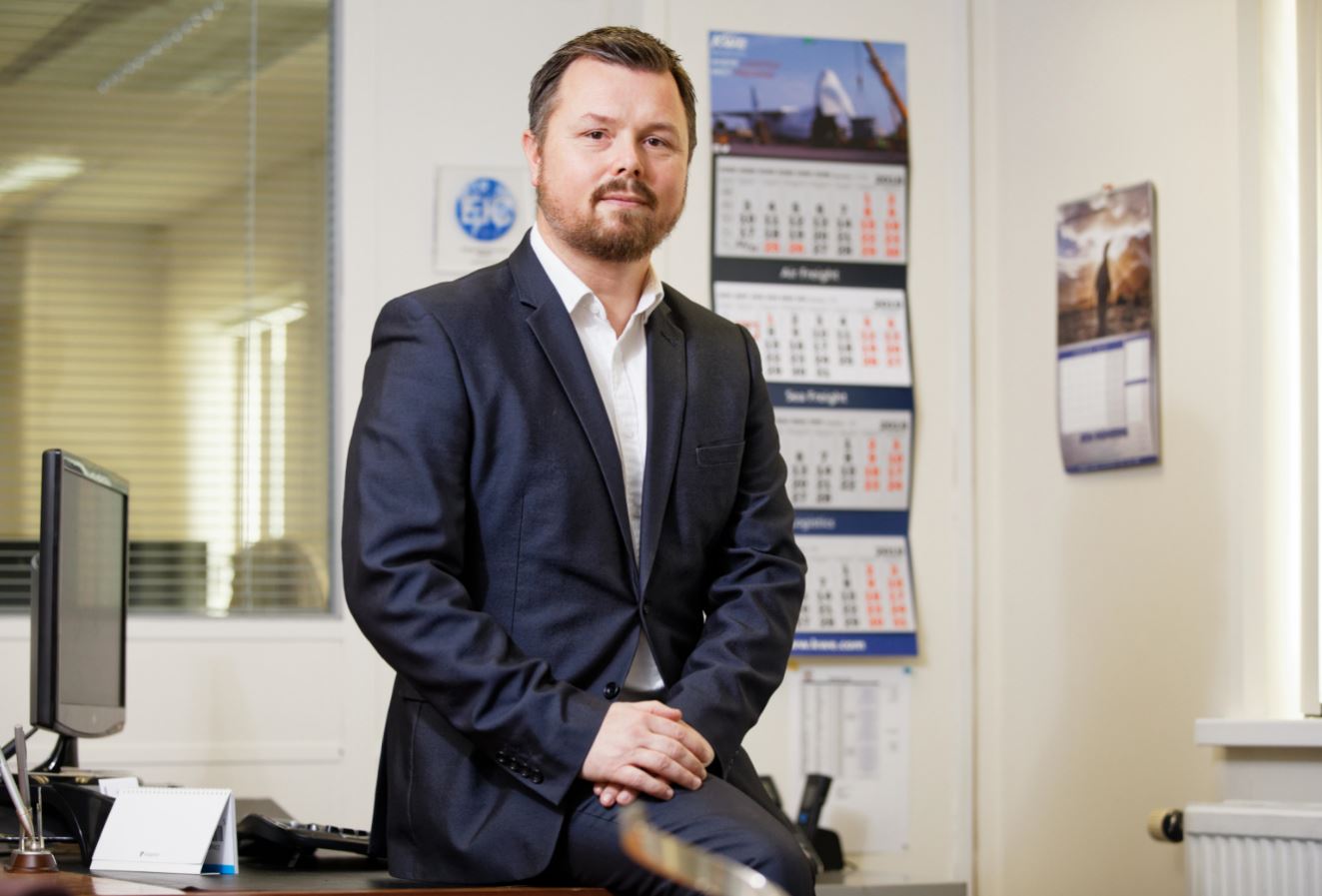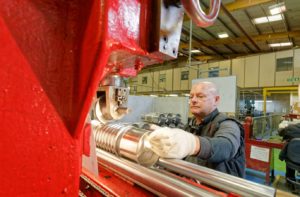Welsh engineering company Teddington Engineered Solutions has grown its turnover by 18 per cent in the last two years thanks to export success. Exports makes up 66 per cent of the firm’s sales. The company has exported to more than 90 countries since 2003, with China, the Middle East and Europe among its largest markets.
Established in the 1920s, Teddington Engineered Solutions designs and manufactures expansion joints for a range of industries including aerospace, marine, nuclear power and defence. It supplied the parts that helped keep the RAF’s Spitfires flying during the Second World War.
Jason Thomas, commercial director, tells Growth Business about cultural differences in China and the Middle East, what advice he would have for new exporters and why Brexit may just be an opportunity.
Why are you achieving record-breaking export sales now? What has changed?
We buck the trend compared to a lot of UK companies which import their product from China. Instead, we export into China. It’s a specialised product and in many industries, our engineering experience along with a reliable, quality product makes us an easy choice.
You can’t just put it down to just one thing. In the past, we were always reactive but now we’re very proactive when it comes to new markets. It’s a big wide world out there.
The assistance that we’ve had over the last 10-15 years from the Welsh government has accelerated our success. Without its support and access to market, we’d be about halfway behind where we are now. Visiting these countries has been a big learning curve for us.
Certainly, in the last couple of years, the weak pound has made us far more competitive overseas. It’s certainly helped us win big contracts in Asia, the Middle East and United States.
What business culture differences have you noticed in Asia and the Middle East?
There are subtle differences all over the world. It’s all about growing relationships.
You do have to be careful though. In the past, we’ve been guilty of a few errors and a loss of face. If you do make mistakes in China, they take a long time to forgive and forget. It’s been about rebuilding trust and proving our quality.
Kuwait is a lot more relaxed than it was a decade ago. In any Arabic country, whether it’s the hot climate, things do seem to happen more slowly, which can be frustrating. You say, ‘We’ve got a deal?’ and they say, ‘yes’ and then add the word ‘inshallah’ onto it. It’s sort of an errors and omissions policy (laughs).
In China, I’ve found over the years that when the Chinese say yes, they don’t always mean yes. They’re such a very polite people, they don’t want to displease or let you down. You walk away thinking, it’s a done deal and later you realise you’re actually quite a long way off from it.
What tips do you have for any British business considering exports for the first time?
The two biggest tips I have are make sure that your national UK market is secure before you start exporting, and don’t expect overnight results. Honestly, it takes a lot of face-to-face meetings, air miles and patience to get to where you want to be. Put the hard yards in early and you’ll get the rewards.
How will Brexit affect your business? Does it provide any opportunities?
That’s the first time anybody has asked me if there are opportunities to come out of Brexit. If I knew what was going to happen, I would probably be advising Theresa May in Downing Street. To be honest, I don’t think anybody knows how it’s going to play out. Until the last minute, none of us really know what Brexit is going to look like.
Of course, we have worries. I always try to remain as positive as I can. I’ve got customers in the EU asking, ‘What’s going to happen?’ Look, there may be some customs delays, and if we go to WTO rules, there will be tariff quotas, but the pound may get weaker again, which could offset any tariffs.
I really don’t think it’s going to affect us a lot apart from some disruption this year. We’ve asked suppliers what their contingencies are so we can get in stock. You’ve just got to put some contingency in place. The UK is one of the EU’s biggest importers of products and, conversely, one of its biggest exporters.
We’re a global company that exports across the world. Britain plays a big part in global exporting. Trade will go on. It’s too big a part of life for it not to continue. You’ve just got to trust the Government to come up with new trade agreements for places like Kuwait, the UAE and China.
I certainly do see opportunities. If the UK doesn’t get a deal, the pound certainly won’t get any stronger, which will help keep us competitive.
Related: Overcoming obstacles to exporting








